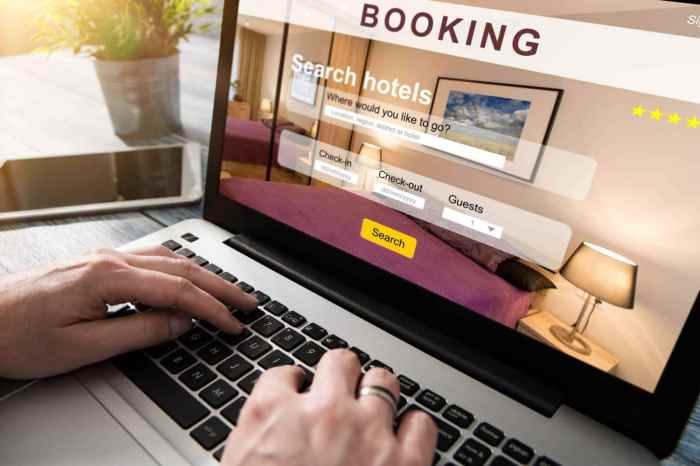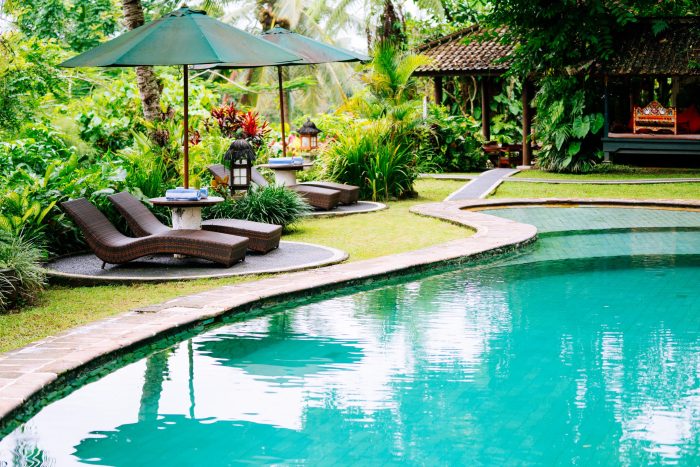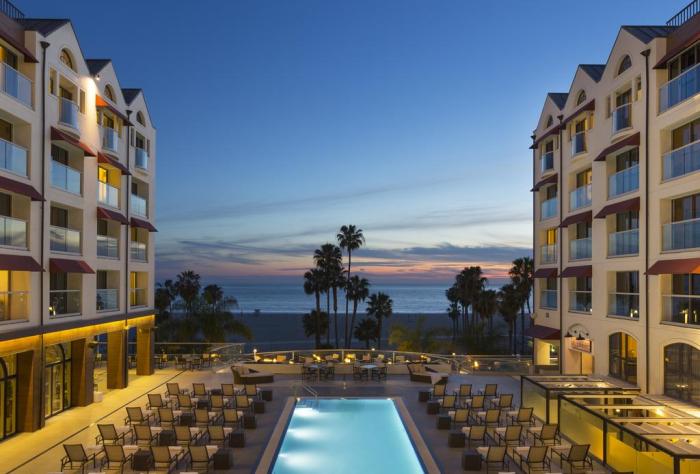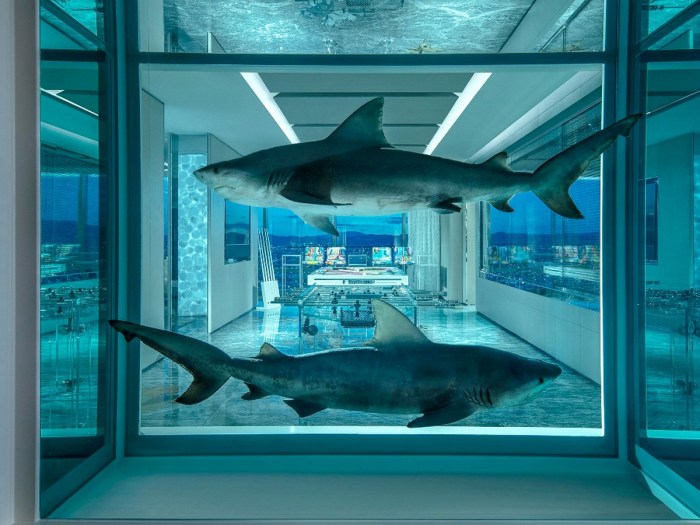How to Book the Perfect Hotel for Your Next Trip: Planning a memorable vacation begins with securing the ideal accommodation. This guide will walk you through the process, from understanding your personal needs and researching hotels to comparing options, making your booking, and maximizing your hotel experience. We’ll cover everything from finding the best deals to navigating hidden fees and handling unexpected situations, ensuring a smooth and enjoyable stay.
Finding the perfect hotel can feel overwhelming, but with a strategic approach, it becomes a manageable and even exciting task. This guide offers a structured method to navigate the myriad of choices, helping you find the perfect match for your budget, travel style, and desired amenities. Let’s embark on this journey together to discover the secrets to securing your dream hotel.
Understanding Your Needs: How To Book The Perfect Hotel For Your Next Trip
Choosing the perfect hotel involves careful consideration of several key factors to ensure your stay aligns with your travel style and budget. A well-planned approach will lead to a more enjoyable and stress-free trip. This section will guide you through the essential aspects of understanding your needs before you begin your hotel search.
Three primary factors significantly influence your hotel selection: budget, location, and amenities. These elements, when considered together, paint a clear picture of your ideal hotel and help narrow down your options effectively.
Budget Considerations
Establishing a clear budget is crucial for finding a hotel that fits your financial plan. This involves considering not only the nightly rate but also potential additional expenses such as resort fees, parking, and taxes. For example, a traveler on a backpacking trip might allocate a significantly smaller budget than a family celebrating an anniversary. Understanding your budget range allows you to filter search results and focus on hotels within your affordability.
Consider setting a maximum daily rate and sticking to it to avoid overspending.
Location’s Importance
The hotel’s location plays a vital role in determining the overall experience of your trip. Proximity to attractions, transportation hubs, and local amenities can significantly impact convenience and enjoyment. For instance, a business traveler might prioritize a hotel near the convention center or business district, while a leisure traveler might prefer a location close to beaches, restaurants, or museums.
Carefully considering the location in relation to your planned activities is key to a smooth and enjoyable stay.
Amenities and Their Value
The amenities offered by a hotel can greatly enhance your stay. These can range from basic necessities like Wi-Fi and breakfast to more luxurious features such as a swimming pool, spa, or fitness center. The value of these amenities varies depending on individual preferences and travel style. For example, a family with children might prioritize hotels with a pool and kids’ club, while a couple on a romantic getaway might opt for a hotel with a spa and fine dining options.
Identifying your must-have amenities helps you filter options and select a hotel that caters to your specific needs.
Travel Dates and Availability
Travel dates significantly impact hotel pricing and availability. Peak seasons, holidays, and major events typically result in higher prices and limited availability. Conversely, booking during the off-season can often lead to significant savings and a wider selection of hotels. For example, booking a hotel in a popular tourist destination during the summer months will generally be more expensive and require booking well in advance compared to booking during the shoulder season (spring or fall).
Booking Directly Versus Third-Party Websites, How to Book the Perfect Hotel for Your Next Trip
The decision to book directly with a hotel or through a third-party website involves weighing various advantages and disadvantages. Both options offer benefits and drawbacks that should be carefully considered.
Booking directly with a hotel often provides greater flexibility, potentially better rates (especially if the hotel is running a special offer), and a more personalized experience. However, it might limit your access to comparison tools and potentially reduce your options if the hotel is fully booked. Conversely, using a third-party website offers convenience through comparison tools, potential access to wider selections, and sometimes better deals through bundled packages or reward programs.
However, you may encounter additional fees, reduced flexibility in terms of cancellations or changes, and potentially a less personalized service.
Researching Hotels

Finding the perfect hotel involves more than just knowing your needs; it requires thorough research. A strategic approach to your search, utilizing various resources and critically evaluating information, will significantly increase your chances of booking a hotel that meets – and even exceeds – your expectations. This section will guide you through effective research techniques to ensure a smooth and satisfying hotel booking experience.
Designing a Search Strategy
A well-defined search strategy is crucial for efficient hotel hunting. Begin by identifying your key criteria. Consider factors such as desired location (proximity to attractions, business districts, or transportation hubs), preferred hotel brand affiliations (if any), desired amenities (pool, spa, fitness center), budget constraints, and travel dates. Utilize online travel agencies (OTAs) and hotel booking websites, employing these criteria as filters.
For example, if you’re visiting New York City and want a Hilton hotel near Times Square with a budget of $200 per night, your search should reflect these specifics. Experiment with different combinations of filters to refine your results. Consider using map views to visually assess hotel locations relative to your planned activities.
Reputable Hotel Review Websites
Accessing reliable reviews is paramount in making an informed decision. Several reputable websites provide comprehensive and user-generated reviews, offering valuable insights into various aspects of a hotel’s offerings.
- TripAdvisor: Known for its vast user base and detailed reviews covering various aspects, from cleanliness and service to location and amenities.
- Booking.com: A popular OTA offering user reviews alongside hotel bookings, often including photos and videos.
- Expedia: Similar to Booking.com, Expedia provides user reviews alongside booking capabilities, focusing on a wide range of hotels globally.
- Hotels.com: Another major OTA with a substantial collection of user reviews and a rewards program.
- Google Hotels: Integrates hotel information from various sources, including user reviews from Google Maps and other platforms.
The Importance of Reading Multiple Reviews
Relying on a single review can be misleading. Reading multiple reviews from different sources helps create a balanced perspective of a hotel. Look for recurring themes in positive and negative reviews. For example, consistent complaints about noise levels or poor service should be taken seriously. Consider the reviewer’s profile and travel style – a business traveler’s priorities might differ from a family’s.
Pay attention to the dates of the reviews; recent reviews offer the most up-to-date information. By analyzing a variety of perspectives, you gain a more comprehensive understanding of the hotel’s strengths and weaknesses, allowing you to make a well-informed booking decision.
Comparing Hotel Options

Choosing the right hotel often comes down to careful comparison. After researching potential hotels, the next crucial step is to systematically compare your top choices to ensure you’re getting the best value and amenities for your needs. This involves a detailed examination of pricing, location, amenities, and guest reviews, helping you make an informed decision.
Hotel Comparison Table
A clear comparison table is invaluable in this process. Below is an example, though your specific options will vary depending on your destination and travel dates. Remember to check the most up-to-date pricing and availability directly with the hotels.
| Name | Price (per night) | Location | Amenities | Guest Reviews (Summary) |
|---|---|---|---|---|
| The Grand Hotel | $250 | City Center, close to major attractions | Indoor pool, fitness center, spa, fine dining restaurant, free Wi-Fi | Mostly positive; excellent service, luxurious rooms, but some complaints about noise levels. |
| Comfort Inn & Suites | $120 | Suburban location, near public transport | Free breakfast, free airport shuttle, outdoor pool, free Wi-Fi | Generally positive; good value for money, clean rooms, but amenities are more basic. |
| Boutique Hotel Charm | $180 | Historic district, walking distance to shops and restaurants | Unique decor, rooftop bar, complimentary afternoon tea, free Wi-Fi | Very positive; charming atmosphere, friendly staff, but smaller rooms than other options. |
Hidden Hotel Fees
Many hotels include fees that aren’t always immediately apparent during the initial booking process. Being aware of these potential “hidden” costs is crucial for accurate budgeting. Examples include resort fees (covering amenities like pool access or Wi-Fi), parking fees (which can be significant in city centers), early check-in or late check-out fees, and even fees for using certain hotel amenities.
Always carefully review the full pricing breakdown before confirming your reservation.
Hotel Room Types: Pros and Cons
Different room types cater to varying needs and budgets. Understanding the differences is key to selecting the most suitable accommodation.A single room offers basic amenities for one person, ideal for solo travelers prioritizing affordability. A double room accommodates two guests and often includes a double bed or two single beds, suitable for couples or friends traveling together. Suites provide significantly more space, often including separate living areas, bedrooms, and sometimes even kitchenettes.
Suites are ideal for families or longer stays, but generally come with a higher price tag. The choice depends on your travel companions, length of stay, and budget.
Maximizing Your Hotel Experience
Choosing the right hotel is only half the battle; maximizing your stay requires proactive communication and awareness of available services. A little planning and preparation can transform a good hotel stay into a truly memorable one. This section will provide guidance on enhancing your hotel experience from pre-arrival communication to handling unforeseen circumstances.Effective Communication with Hotel StaffClear and concise communication is crucial for a positive hotel experience.
Before your stay, confirm your reservation details, including any special requests (e.g., early check-in, high floor, specific bed type) via email or phone. During your stay, address any concerns or requests promptly and politely. For example, if you require extra towels or have a problem with your room, contact reception directly. Be specific in your requests to avoid misunderstandings.
A polite and respectful tone will often result in a quicker and more satisfactory resolution.
Hotel Amenities and Services
Many hotels offer a range of amenities and services designed to enhance guest comfort and convenience. These can significantly improve your overall experience. Understanding what’s available allows you to fully utilize your hotel stay.
- Room Service: Most hotels provide room service, allowing you to order meals and drinks directly to your room. This is particularly convenient for late-night snacks or if you prefer to dine in the privacy of your room.
- Airport Shuttle: Many hotels, especially those near airports, offer complimentary or paid airport shuttle services. This eliminates the need to arrange for taxis or ride-sharing services, providing a stress-free transfer to and from the airport.
- Concierge Services: Hotels often have concierge desks that can assist with booking tours, making restaurant reservations, arranging transportation, and providing local information. This service can be invaluable for planning activities and maximizing your time in a new location.
- Fitness Center: Many hotels feature fitness centers, providing guests with access to workout equipment. This allows you to maintain your fitness routine even while traveling.
- Swimming Pool and Spa: Some hotels offer swimming pools and spa services, such as massages and facials. These amenities provide opportunities for relaxation and rejuvenation during your stay.
Handling Unexpected Issues
Despite careful planning, unforeseen problems can arise during your hotel stay. Knowing how to address these issues effectively is key to minimizing disruption and ensuring a pleasant experience.Addressing problems calmly and politely is crucial. Begin by contacting the hotel reception or management to explain the situation clearly and concisely. Provide specific details about the issue, including the time it occurred and any relevant information.
For example, if there is a problem with your room’s plumbing, describe the issue clearly and provide your room number. Most hotels are responsive to guest concerns and will strive to resolve the issue efficiently. If the problem persists or remains unresolved, consider escalating the complaint to higher management or contacting the hotel’s customer service department. In rare cases where the issue is significant and cannot be resolved, you may need to seek alternative accommodations.
Keeping records of your communications, including dates, times, and names of individuals contacted, can be helpful if you need to pursue further action.
Visualizing the Hotel Experience
Before you book, it’s incredibly helpful to visualize your ideal hotel stay. By creating a mental picture of what you want your experience to be like, you can more effectively compare hotels and ultimately make a better choice. This involves considering not just the practical aspects, like location and price, but also the sensory details that contribute to a truly memorable stay.
The Ideal Family Hotel Room
A perfect family hotel room for a vacation should be spacious and well-equipped to accommodate everyone comfortably. Imagine a suite with two separate bedrooms, one for the parents and one for the children, each with its own comfortable queen-size bed. A connecting living area would provide ample space for the family to relax and spend time together, perhaps with a comfortable sofa bed for extra sleeping space.
A well-equipped kitchenette would be a valuable asset, allowing for the preparation of simple meals and snacks, saving on dining costs and offering flexibility. The bathroom should be large enough for multiple people to use simultaneously, perhaps with a double vanity and a separate shower and bathtub. For entertainment, a large flat-screen television with access to streaming services would be a welcome addition, along with high-speed Wi-Fi for connectivity.
Cribs or extra beds should be readily available upon request, and sufficient storage space, such as ample drawers and closets, is crucial for a comfortable family stay.
A Luxurious Hotel Lobby Atmosphere
Picture stepping into a hotel lobby where the air is subtly scented with a calming blend of lavender and sandalwood. The lighting is soft and warm, provided by a combination of elegant chandeliers and strategically placed floor lamps, casting a gentle glow on the plush, velvet seating areas. The decor is a sophisticated blend of modern and classic elements, with rich mahogany furniture, marble flooring, and artwork showcasing local artists.
Large windows allow natural light to flood the space, while strategically placed plants add a touch of nature. A grand fireplace, perhaps crackling merrily, provides a focal point and a warm, inviting ambiance. The overall effect is one of refined elegance and tranquil sophistication, creating a sense of calm and relaxation that sets the tone for the entire stay.
Soft, classical music plays in the background, adding to the peaceful and luxurious atmosphere.
A Breathtaking Hotel View
Imagine waking up to a panoramic view of the ocean, stretching as far as the eye can see. The turquoise water shimmers under the morning sun, while white-capped waves gently crash against the shore. From your hotel room, you can see sailboats gliding across the horizon, and perhaps even dolphins playfully leaping from the water. The air is fresh and invigorating, carrying the scent of salt and sea breeze.
This breathtaking view is not merely a pretty picture; it enhances the entire stay, providing a constant source of inspiration and tranquility. Evenings offer a different spectacle, as the sun dips below the horizon, painting the sky in vibrant hues of orange, pink, and purple. This visual feast adds a layer of magic to your stay, making it an unforgettable experience.
Such a view might equally showcase a sprawling cityscape at night, with glittering skyscrapers reaching towards the heavens, or a majestic mountain range, snow-capped peaks piercing the clear blue sky. The specific vista varies, but the impact on the guest experience remains consistently positive.
Last Recap

Booking the perfect hotel is a crucial step in planning a successful trip. By following the steps Artikeld in this guide – understanding your needs, researching thoroughly, comparing options carefully, booking securely, and maximizing your experience – you can transform your hotel stay from a mere necessity into a significant part of your overall vacation enjoyment. Remember, the perfect hotel is out there, waiting for you to find it.
Happy travels!
Q&A
What is the best time to book a hotel for the lowest price?
Generally, booking well in advance (2-3 months) or at the last minute (a few days before) can sometimes yield lower prices, depending on the destination and season. However, booking too late can limit your choices.
How can I avoid hidden fees when booking a hotel?
Carefully read the fine print, including details about resort fees, parking charges, and cancellation policies. Look for a comprehensive breakdown of all charges before confirming your booking.
What should I do if there’s a problem with my hotel room?
Immediately contact the hotel reception. Explain the issue calmly and professionally. Most hotels are eager to resolve problems to ensure guest satisfaction.
Are there any benefits to using a travel agent to book a hotel?
Travel agents can offer personalized advice, access to exclusive deals, and assistance with itinerary planning. They can be especially helpful for complex or international trips.
Can I change or cancel my hotel booking after it’s confirmed?
The ability to change or cancel depends entirely on the hotel’s cancellation policy, which should be clearly stated in your booking confirmation. Review this policy carefully before confirming your reservation.






